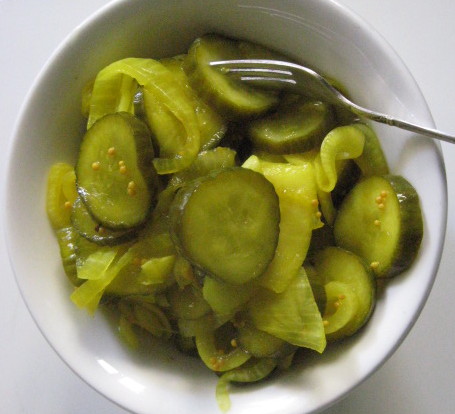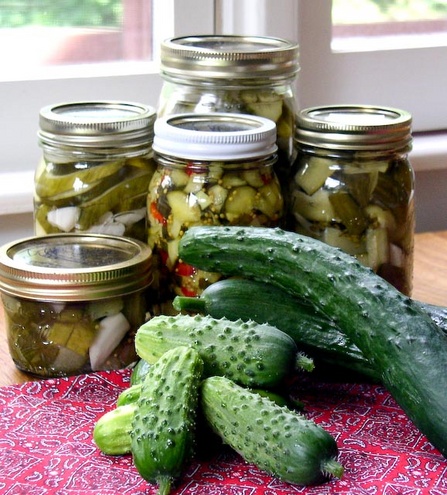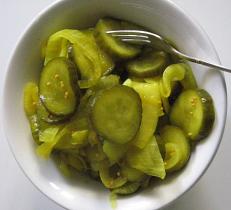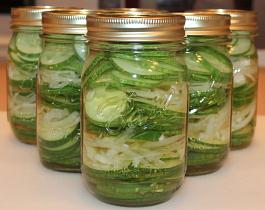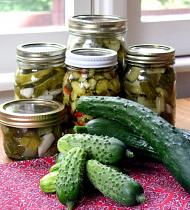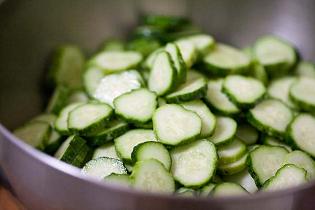Dr. Mercola: Enhancing Cucumber Attributes By Pickling
Pickles starting as cucumbers are related to the melon and squash families. Coming in two varieties with a bigger version used as sliced and the smaller version used for pickling. Composed of 90 percent water, they provide a long list of health benefits.
Pickling has been long part of our ancestral cuisine. Dating back to 2030 B.C, cucumbers had been preserved in India and Tigris Valley regions.
The dietary intake of cucumbers ensures adequate amount of water and fiber reaches the body. A single cup of chopped up cucumbers provides around 11 percent of vitamin K, which combats inflammation, 4 percent of vitamin C which fights infection, 4 percent of pantothenic acid (vitamin B5) which helps in producing energy, 4 percent of manganese, which helps in building strong bones and 4 percent each of potassium and magnesium, both promoting cardiovascular health.
Cucumbers have been used as health remedies for several conditions such as headache and tiredness. It helps combat fatigue in summers. They even have antioxidant properties that help fight cancer. A study has quoted, “Glycosides, steroids, carbohydrates, saponins and tannins. Therefore, the presence of flavonoids and tannins in the extract suggests that these compounds might be responsible for free radical scavenging and analgesic effects of the extract.”
Pickling cucumbers may have an added effect. Probiotics give an supplementary profit. Even when cucumbers are pickled in salt and water only, they still are healthier. “They are left to ferment for some time, using their own naturally present lactic acid bacteria. This process is what makes them sour. Pickled cucumbers are a great source of healthy probiotic bacteria, which may improve digestive health.”
However it may be important to note that pickling with vinegar kills useful bacteria hence lessening the probiotic advantage. As for the pickled pickles, according to quotes by PBS,
“Pickles are created by immersing fresh fruits or vegetables in an acidic liquid or saltwater brine until they are no longer considered raw or vulnerable to spoilage. When we think of pickles, cucumbers commonly come to mind. Pickled cucumbers are often lacto-fermented in saltwater brine.
During this process lactic microbial organisms develop, which turn the naturally occurring sugars of foods into lactic acid. In turn, the environment becomes acidic quickly, making it impossible for any spoiling bacteria to multiply.
Cucumber pickles can also be made with a salt and vinegar brine, a popular choice for home cooks. The brine is known as ‘pickle juice.’”
Probiotic cucumbers contain supplemental enzymes, increases mineral bioavailability and help in producing short chain fatty acids which are beneficial for health. Vitamin B, biotin and folic acid are also increased. It cures stomach acidity and muscle cramps. Cauliflower, radishes, beans, onions and asparagus etc can be used alongside cucumbers for added nutrients and flavors.
References:
Mercola.com
J Young Pharm. 2010 October-December; 2(4):365-368
Scientific World Journal 2010 March 5;10;413-8
Comments
There are 0 comments on this post


